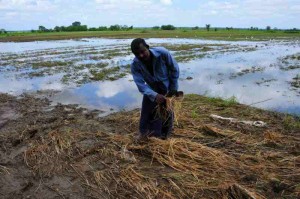YANGON, Myanmar (Thomson Reuters Foundation) – It is still home to some of the most pristine forests in Southeast Asia. But forest experts warn that Myanmar is fast losing its woodlands due to a combination of commercial logging, agricultural expansion and firewood harvesting. According to the UN-REDD Programme, at least half of Myammar’s land of 667,000 square kilometres is still covered in forest. But the country also has suffered an alarmingly high rate of deforestation. The UN–REDD Programme estimates that in the 15 years between 1990 and 2005, the country lost 18 percent of its forests, and the deforestation rate may have since increased.The World Wildlife Fund (WWF), looking at a somewhat longer period, estimates that Myanmar lost more than half of its dense forest cover between 1990 and 2010, with the area covered by forest falling from 45 percent to around 20 percent. http://www.trust.org/item/20140326124321-kpqdz/?source=hptop







 A brief radio feature on World Ocean Day by Desiree Francis for HOT FM Radio Network Pakistan
A brief radio feature on World Ocean Day by Desiree Francis for HOT FM Radio Network Pakistan





